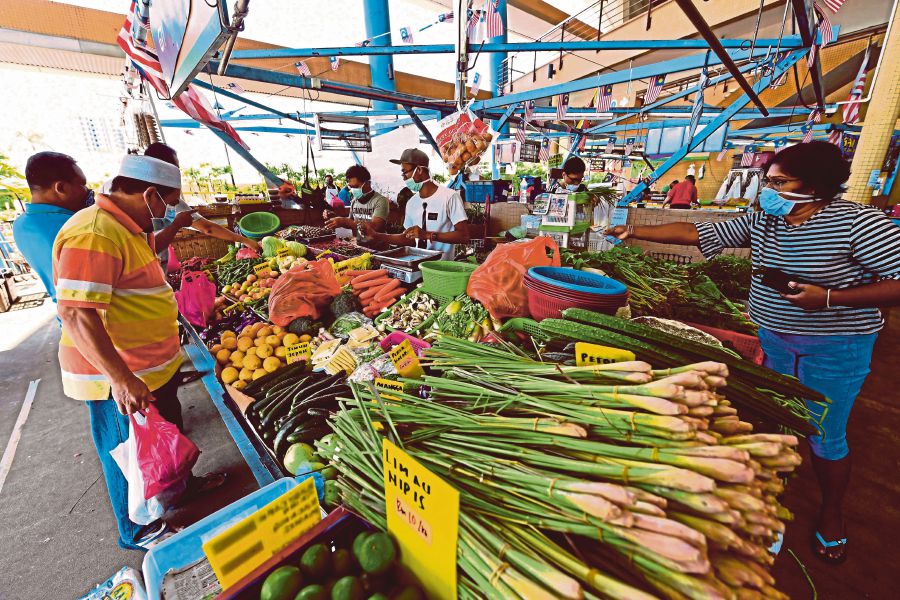The Asean Economic Recovery Plan is meant to ensure a smooth flow of food supplies among the Asean countries for the post-Covid-19 and because of this and the pandemic, Malaysia needs to re-strategise in order to localise its food supply chain in response to restricted border policies which may take some time to ease.
Due to those restrictions for the time being, local producers will not be able to fully meet the demand for domestic fresh produce and among the reasons are low production capacity, high labour cost, transportation and equipment issues.
These constraints have left them without much choices except for direct sales to market and/or being dependent on wholesalers.
The Federal Agriculture Marketing Authority (FAMA) highlighted that Malaysia's fruits and vegetables import bill has been in excess of RM8.5 billion per year.
It is expected, though, that the post-pandemic demand may lead to bigger opportunities to improve the livelihood of local producers while addressing and cushioning the potential increase in food prices and inflation for being too dependent on imports.
 Reducing the subsidies of carefully selected items will not only reduce food wastage and over consumption by household but also allow for savings to the nation. (BERNAMA/File pic)
Reducing the subsidies of carefully selected items will not only reduce food wastage and over consumption by household but also allow for savings to the nation. (BERNAMA/File pic)
In this case, the national policy targeted for total rice self-sufficiency in 2020 requires a massive additional expenditure at the farming and processing level. Malaysia can perhaps also make a move to liberalise the rice trade to strengthen food security and to address its rice-deficit issue.
The consumer will benefit of decreasing price due to a better competitive market environment. This will ensure the price of the commodity remains affordable to the population at large. A clear food waste policy needs to work concurrently to strengthen our food security.
Perhaps, the policymakers may consider looking beyond physical food retail to online retail. Food waste sometimes occurs due to limited time of consumers going to hypermarkets because of work demands as well as travel time in the city.
Currently, Malaysia spends RM2 billion on subsidies to control the price of basic goods such as sugar, flour and cooking oil. Reducing the subsidies of carefully selected items will not only reduce food wastage and over consumption by household but also allow for savings to the nation.
The next question is about how to strengthen local food supply chain, improved food access to the under-privileged and reduced food waste is sustainable in post-crisis situations.
We can only benefit by having a comprehensive analysis of these questions in terms of employability, quality of life and food products. Most importantly, it also presents a sense of early preparedness should another unprecedented crisis recurs.